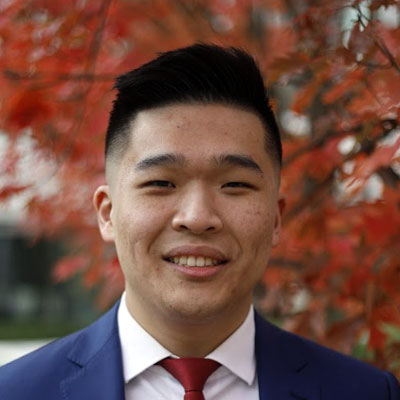Helping entrepreneurs find opportunity in the circular economy: Global Undergraduate Awards Profile
 Shawn Liu
Shawn Liu
Global Winner
2020 Global Undergradate Awards
Category: Business
Shawn Liu, HBA’20, was interested in learning more about how entrepreneurs can recognize and embrace opportunities in the circular economy to advance their business and contribute to environmental sustainability.
His award-winning paper, Opportunity Recognition Regarding the Circular Economy in the Canadian Food Sector, was the outcome of a half-credit research course, part of completing his Honours Business Administration degree at Ivey Business School.
A circular economy is a regenerative system of operations that aims to decouple growth from the use of finite resources, explained Liu. “It’s a system of designing out waste and pollution by keeping materials and products in use for as long as possible. For example, using oils that are a by-product of production to make soap, or using fresh food waste to make teas and juices.”
His research, completed under the supervision of Ivey assistant professor, Jury Gualandris, examined small- and medium-sized businesses in the Quebec food industry to understand how and why entrepreneurs are embracing the circular economy.Supply chains make up the bulk of carbon emissions and waste. That’s something that a circular approach might help to solve,” explained Liu.
Quebec has seen an early adoption of organics and opportunities to tap into the circular economy in the food industry, says Liu. He contacted entrepreneurs and interviewed them about their experiences. Each of the companies experienced opportunities in different ways and at different stages but Liu’s research identified three big factors that played a role.
“Entrepreneurs that actively searched for these opportunities were more likely to engage with them, or they often had backgrounds that gave them a high level of awareness of food waste – for example having worked in restaurant or grocery store, or they had prior food industry knowledge,” according to Liu.
The culture of the business was also important, said Liu. How quickly they can adapt to new ideas and innovate had a big impact on the ability to capitalize on opportunities, regardless of the company size.
“Broadly speaking, we know the circular economy is important to maintaining society and enhancing sustainability. If we understand how this happens within businesses, there can be key learnings incorporated into business curricula or training,” said Liu. “If we can understand the way engagement happens with these opportunities, the chances are higher of more organizations implementing these tactics, and therefore reducing the impact of supply chains – in the food space, and in other industries as well.”
Liu is currently an Analytics Consultant at technology firm, Validere, in Toronto. In future he plans to continue working in analytics, combining his interest in data with his interest in business sustainability.
“We use so much of our technology in big data and artificial intelligence to sell ads to consumers. It would be great to use this technology as a priority to enhance sustainability.”
Liu said he hadn’t heard of The Global Undergraduate Awards before this year, but he is thrilled to win and is looking forward to connecting with the global network of other winning students and reading all their papers.

